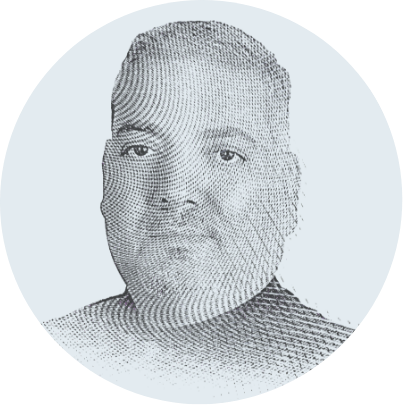Many theories of the social contract and natural rights were developed between the 17th and 18th centuries. The most famous among the theorists behind them include Thomas Hobbes, John Locke, Jean-Jacques Rousseau, and, later, Immanuel Kant. Each of them, in his own way, sought to resolve the problem of political authority.
The central premise of the “social contract” theory is that law and political order are not natural phenomena but human constructs. Accordingly, the social contract (and the political system it gives rise to) is a means toward an end: the well-being of the people who are bound by it.
The contract remains legitimate only so long as those involved uphold their mutual commitments. Does the current moment call for a new social contract – one suited to what the Italian Marxist thinker Antonio Gramsci (1891–1937) famously called “the time of monsters”?
An overwhelming sense of disappointment has prevailed across the world. Successive national social contracts have broken down, and the international order is growing increasingly frail, raising the alarming prospect of a collapse. This state of affairs urges us to develop a new global social contract grounded in progress, anchored in security and stability, veering toward the refinement of nations and the cultivation of peoples, and guided by a belief that we have a shared destiny.
However, what the Scottish moral philosopher and economist Adam Smith (1723–1790) once called the “circles of sympathy” that produce a cooperative rather than a conflictual society seem distant.
Successive crises have revealed the pressing need for a genuine global social contract over the past five years. They began with the COVID-19 pandemic, which exposed our fragility and revealed the dangers of neglecting underfunded health systems, gaps in social protection, and deep structural inequalities within societies.
Our world is languishing under the weight of inequality and the shadow of historical injustices and political colonial legacies; some are the result of patriarchal power structures, others of the digital divide.
The need for a new contract grows ever stronger, especially in Gramsci’s time of monsters. Our current challenges are not familiar, nor even unpacked by the ancients.
Take, for instance, the ecological question. Our blue planet now stands on the brink of extinction, as the danger has surpassed the stage of mere global warming and entered an era of boiling. The entire future of planet Earth has now become uncertain.
Tragically, the world’s major powers, chief among them the United States, believe that the alarm around climate change is exaggerated, even a big lie. Meanwhile, China continues down the path of carbon-based energy, leaving humanity to its fate.
One of Gramsci’s “monsters” threatening the old world order (without the capacity to generate an alternative), economic peril stands out. Many now expect a global financial collapse and a worldwide depression worse than that of the 1930s. One need only contemplate the state of global debt, especially that of the US.
Another of Gramsci’s monsters that call for a new social contract is the resurgence of nationalism and populism, both synonyms for the exclusion and isolation of “the other,” as well as the notion that the planet’s resources cannot sustain us all.
There is, in fact, a strong inverse correlation between levels of development and prosperity on the one hand, and the movements of right-wing fundamentalism rejecting immigration and cultural globalization on the other. When people feel insecure in their own countries, they turn inward out of fear of competition. Divided and anxious societies become fertile ground for populism, nationalism, selfishness, and individualism.
Conversely, when the earth flourishes and yields abundance, it becomes easy for nations, peoples, and tribes to show generosity toward the deprived – both at home and abroad.
Are there other factors that urge us to develop a new, modern social contract?
Those who listened to President Trump’s recent speech to the generals in Virginia, and his remarks on the trillion-dollar US military budget, cannot help but conclude that the world is on the cusp of a senseless arms race worse than that of the Cold War era.
What is both alarming and extraordinary is the introduction of new players such as China, which is seeking to build a land-based nuclear arsenal, as well as aspiring to join Russia and the United States in the militarization of outer space.
One question demands a discussion of its own: artificial intelligence. Sam Altman, founder and CEO of OpenAI, has written about the urgent need for a new social contract because the basic conditions of humanity, and the state of humankind itself, are irreversibly transformed.
